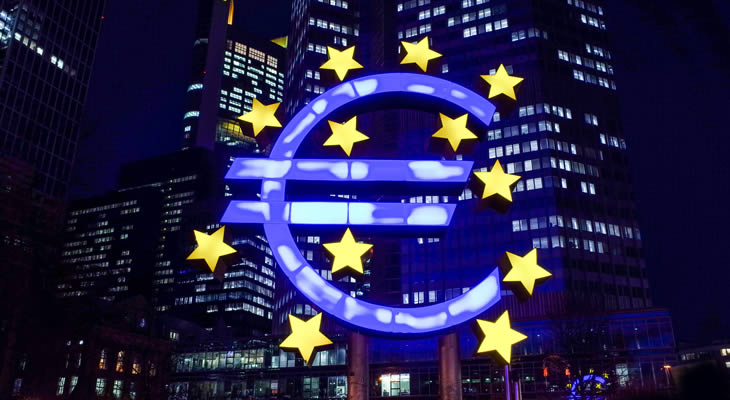After making strong gains on the back of increased market confidence that centrist Emmanuel Macron will become the next French president the Euro lost some of its bullish momentum.
With markets pricing in higher odds of a Macron presidency the upside potential of the Euro Pound exchange rate is somewhat limited at this juncture.
Although investors are optimistic that far-right candidate Marine Le Pen will not be able to stage a significant comeback the prospect of an upset cannot be ruled out entirely.
Downside pressure for the single currency could also stem from the latest European Central Bank (ECB) monetary policy meeting.
Policymakers are likely to maintain a relatively dovish tone, as analysts at Standard Chartered noted:
‘We also expect forward guidance – that QE will continue at the current pace at least until December 2017 – to remain unchanged. The Governing Council (GC) will likely maintain key phrases in the press statement, saying that rates will remain “at present or lower levels for an extended period of time, and well past the horizon of…net asset purchases”, and that risks to the economy remain “tilted to the downside”. Any softening of these statements could signal earlier removal of policy accommodation.’
If markets see any evidence that policymakers are taking a more optimistic view of the Eurozone economy this could see the EUR GBP exchange rate strengthen further.
An uptick in German or Eurozone inflation may offer the Euro an additional boost, with signs of higher inflationary pressure likely to encourage speculation that the ECB could return to a tightening bias sooner rather than later.
The mood towards the Pound was not overly positive at the start of the week, with domestic data continuing to disappoint.
On top of signs of a slowing housing market and weakening business optimism, the public sector net borrowing figure for March showed a larger-than-expected increase in government debt.
While the annual public deficit fell to its lowest level in nearly a decade investors were not encouraged to see that borrowing had risen by 4.36 billion.
As Brexit looks set to shake up the UK’s trade relationships, and the prospect of a surplus remains distant, investors saw little reason to buy into Sterling.
Further Pound volatility is likely in response to the first quarter UK gross domestic product report, with growth forecast to have slowed on the quarter.
With the general election and the uncertainty of Brexit negotiations set to weigh on the domestic economy for some time to come any indication of weaker growth could send the Pound on a sharp downtrend.
On the other hand, if the GDP data betters expectations this may dent the EUR GBP exchange rate ahead of the weekend.


Comments are closed.